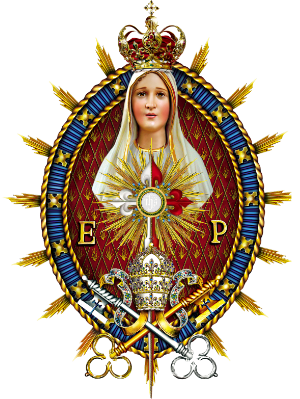Goal
In an effort to provide much needed relief for the grave social problems that afflict human dignity, Heralds of the Gospel in São Paulo, Brazil, has established the Fundo Misericórdia (The Mercy Endowment). This endowment strives to offer assistance to those in need and encourages individuals to actively participate in the charitable endeavors of the Catholic Church. In this manner, the initiative is working to make the world a more caring place where authentic justice and true peace reign in a society built upon the love of Christ.
The Fundo Misericórdia draws its inspiration in Our Lord’s words in the Gospel of St. Matthew (25:35-40):
‘For I was hungry and you gave me food, I was thirsty and you gave me drink, a stranger and you welcomed me, naked and you clothed me, ill and you cared for me, in prison and you visited me.’ Then the righteous
will answer him and say, ‘Lord, when did we see you hungry and feed you, or thirsty and give you drink? When did we see you a stranger and welcome you, or naked and clothe you? When did we see you ill or in prison, and visit you?’ And the king will say to them in reply, ‘Amen, I say to you, whatever you did for one of these least brothers of mine, you did for me.’
To carry out its mission, the Fundo Misericórdia collects and distributes financial aid to a number of diverse entities. These organizations include religious institutions, as well as other non-profit religious, charitable, educational, and cultural associations. The Fundo Misericorida’s projects are primarily focused towards groups that provide social aid and welfare.
Symbol

One may ask; why is the pelican the symbol of the Fundo Misericórdia?
According to legend, the mother pelican would wound herself in time of famine to nourish her young. By feeding them with her own flesh and blood, they would be preserved from death by starvation.
In the symbolism of the pelican, we see Our Lord Jesus Christ, who was wounded from head to foot for love of men. Just as the mother pelican feeds her young, Jesus nourishes us with His Precious Body and Blood, thereby liberating us from death and sin.
Attributed to Saint Thomas Aquinas, in the hymn Adoro Te Devote one can find reference to the Eucharistic symbolism of the pelican:
Pelican of mercy, Jesus, Lord and God,
Cleanse me, wretched sinner, in Thy Precious Blood:
Blood where one drop for human-kind outpoured
Might from all transgression have the world restored
Widely depicted in traditional Catholic iconography, the pelican is one of the most expressive symbols of the Holy Eucharist. It is for this reason that it is a fitting symbol of the Fundo Misericórdia’s mission to generously provide means to the underprivileged.

